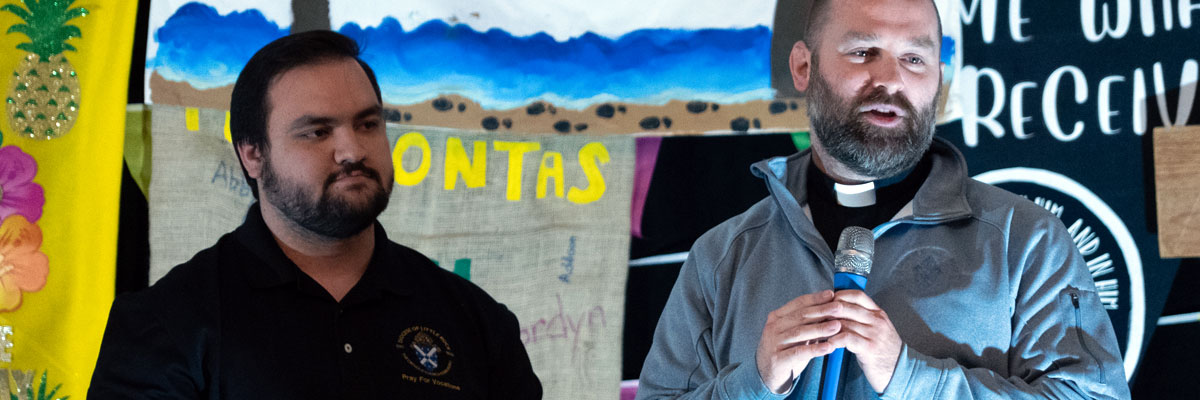Official Website of the
Catholic Diocese of Little Rock
Science’s evolution explains ‘how, ’while belief in creation tells us ‘why’
Published: September 15, 2007
By Charles T. Sullivan
One of the thorniest issues in public education today is the debate between the presumably contradictory theories of evolutionism and creationism. Evolution, broadly speaking, is the generally accepted hypothesis that material being (life) evolves over time from lower into higher forms of material being. This theory is not a wholly contemporary phenomenon. In one form or another, it has been considered and pondered for well over two millennia by academicians as well as theologians. Charles Darwin’s contribution to the discussion in his “Origin of the Species” in 1859 was to provide a plausible explanation of just how evolution occurred: the theory of natural selection. The central argument of creationism, conversely, is based on a fundamentalist (literal) understanding of Genesis and maintains that living organisms are the products of a direct and overt “divine” creation. For Catholics, the biblical account of the duration and order of creation (Genesis 1) is an inspired literary rendering of the central religious truth that the whole universe was called into existence by the creative word of God. Today, most clear-thinking people recognize that “creation” and “evolution” are answers to two very different questions. Evolution presupposes something that changes and develops over time; creation explains why anything that can change and develop over time exists in the first place. In other words, the theory of evolution describes “how” and belief in creation answers “why.” Accordingly, a firm Christian faith in God’s act of creation and a prudently cautious acceptance of the theory of evolution (understood in a sense avoiding exclusion of Divine causality) do not conflict in principle. The Church’s teaching distinguishes between the genesis of man and that of other creatures. It leaves open the discussion of some possible “advancement” over time of human beings from “pre-human” organisms, but holds fast to its belief in the immediate and explicit creation of a human soul by God. This means that we are more than the result of a biological evolution. We are not simply the chance product of time, matter and development; rather, we are individually willed by God in a unique and personal way. This declaration by the Church that humankind is specially and individually created by God highlights and expresses our remarkable position relative to the rest of creation and is the “ground” of our unique dignity: we are made by God in his own image and likeness. (Genesis 1:26) There can never be any real conflict between faith and science. (See “Dei Filius,” paragraph 4) The same God who reveals is also the source and sustainer of the physical universe. Unlike many other Christian denominations, the Catholic Church has never officially opposed the theory of evolution; neither has it ever defended the first three chapters of Genesis as scientific discourse. Pope Pius XII in his encyclical “Humani Generis” (1950) affirmed that it was permissible to “investigate and discuss” the theory of evolution “as far as the present state of human science and sacred theology allow.” (paragraph 36) Charles T. Sullivan, a former member of St. Bernard Church in Bella Vista, has a master’s degree in theology from the University of Dallas. He attends St. Mary Church in Joplin, Mo.









